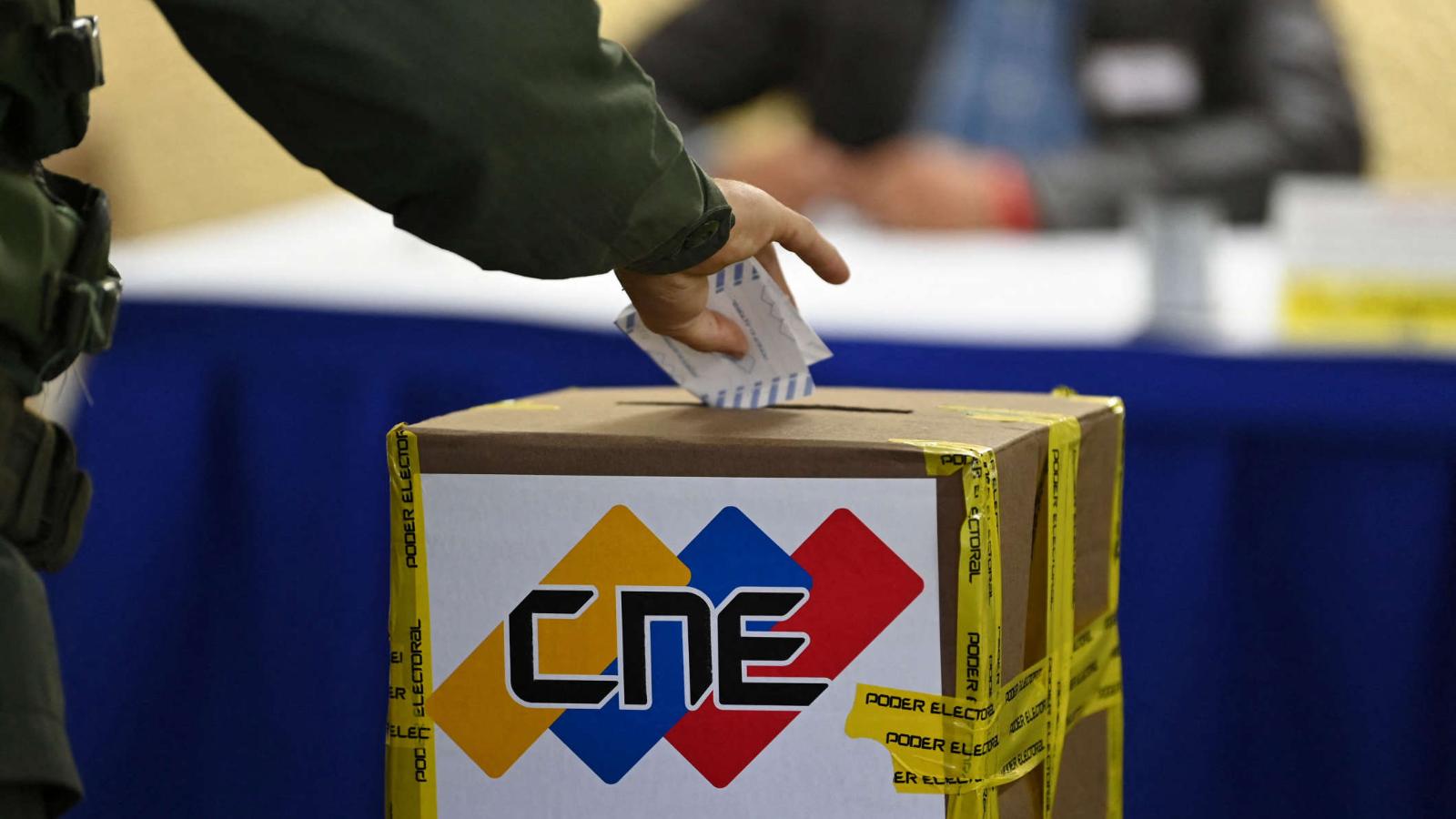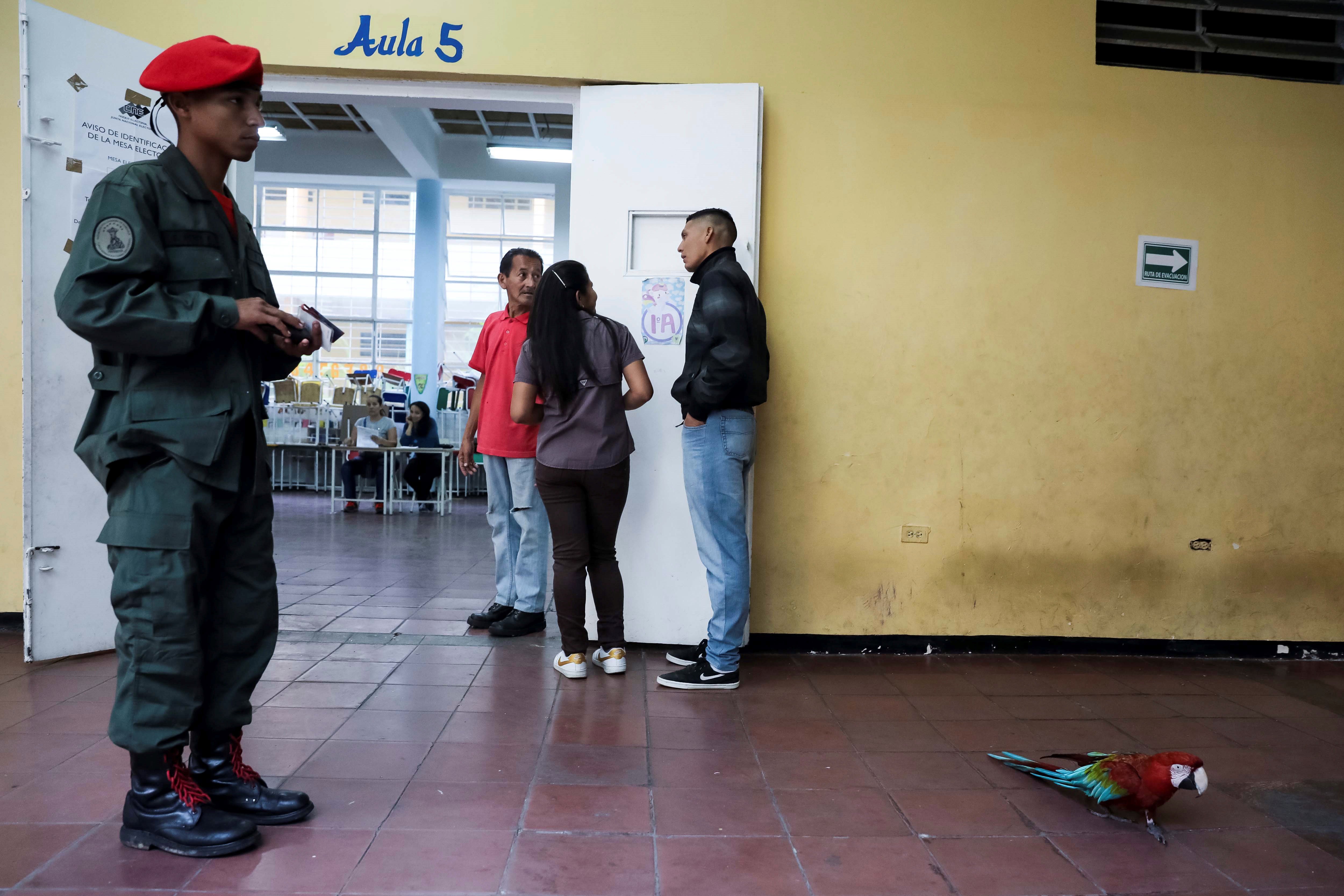Venezuela Voting: Understanding The Political Landscape And Electoral Process
Venezuela voting has become a subject of global interest due to its complex political environment and the challenges faced by its electoral system. The country's voting process is not only a reflection of its internal struggles but also a focal point for international scrutiny. As Venezuela continues to navigate its political journey, understanding the intricacies of its electoral system becomes crucial for anyone seeking clarity on this topic.
The Venezuelan electoral system has undergone significant changes over the years, influenced by various political and economic factors. These changes have sparked debates both domestically and internationally, leading to questions about the legitimacy and transparency of the voting process. In this article, we will delve deep into the voting system in Venezuela, examining its history, current state, and future prospects.
This comprehensive guide aims to provide readers with a detailed understanding of Venezuela's voting system, addressing key issues such as voter participation, electoral reforms, and international perspectives. By the end of this article, you will have a clearer picture of how Venezuela's voting process works and the challenges it faces in ensuring fair and transparent elections.
Read also:Scarlett Pomers Movies And Tv Shows A Comprehensive Guide
Table of Contents
- History of Venezuela Voting
- Electoral System in Venezuela
- Voter Participation and Turnout
- Challenges in the Voting Process
- Electoral Reforms and Improvements
- International Perspective on Venezuela Voting
- Role of Technology in Voting
- Future Outlook for Venezuela Voting
- Comparison with Other Countries
- Conclusion
History of Venezuela Voting
The history of Venezuela voting dates back to the early 20th century when the country first introduced universal suffrage. Initially, voting rights were limited to male citizens, but over time, the system evolved to include all eligible citizens regardless of gender or social status. This transformation marked a significant milestone in Venezuela's democratic journey.
Key Developments in Voting History
- 1947: Introduction of universal suffrage, allowing all citizens to participate in elections.
- 1998: Election of Hugo Chavez as president, leading to significant changes in the electoral system.
- 2004: Implementation of electronic voting machines to enhance transparency and efficiency.
Throughout its history, Venezuela's voting system has faced numerous challenges, including political instability, economic crises, and allegations of electoral fraud. Despite these challenges, the country continues to strive for a more inclusive and transparent electoral process.
Electoral System in Venezuela
The electoral system in Venezuela is designed to ensure fair representation and participation in the democratic process. It operates through a combination of proportional representation and single-member districts, allowing citizens to elect representatives at various levels of government.
Components of the Electoral System
- Presidential Elections: Citizens elect the president through a direct vote.
- National Assembly: Members are elected through a mix of proportional representation and single-member districts.
- Local Elections: Citizens elect governors, mayors, and other local officials.
The National Electoral Council (CNE) oversees the entire voting process, ensuring compliance with electoral laws and regulations. This institution plays a crucial role in maintaining the integrity of the electoral system in Venezuela.
Read also:Exploring Mydesiweb Your Ultimate Destination For Digital Services
Voter Participation and Turnout
Voter participation in Venezuela has fluctuated over the years, influenced by various factors such as political climate, economic conditions, and trust in the electoral system. High voter turnout is often seen as a sign of a healthy democracy, but in Venezuela, it has been a subject of debate due to allegations of coercion and manipulation.
Factors Affecting Voter Participation
- Political Polarization: Divisions between political parties can impact voter turnout.
- Economic Conditions: Economic instability may discourage citizens from participating in elections.
- Trust in the System: Perceived fairness and transparency of the electoral process influence voter participation.
Despite these challenges, efforts are being made to encourage greater voter participation through awareness campaigns and reforms aimed at improving the electoral system.
Challenges in the Voting Process
The voting process in Venezuela faces numerous challenges that threaten its integrity and legitimacy. These challenges include allegations of electoral fraud, lack of transparency, and political interference. Addressing these issues is crucial for ensuring fair and transparent elections in the country.
Major Challenges
- Allegations of Fraud: Claims of vote tampering and irregularities have been a recurring issue.
- Lack of Transparency: Limited access to electoral data and processes raises concerns about transparency.
- Political Interference: Influence from political parties can undermine the independence of the electoral system.
To overcome these challenges, it is essential to implement robust measures that enhance the credibility and reliability of the voting process in Venezuela.
Electoral Reforms and Improvements
In response to the challenges faced by the voting system, Venezuela has initiated several electoral reforms aimed at improving transparency, fairness, and efficiency. These reforms focus on modernizing the electoral infrastructure, enhancing voter education, and strengthening the role of oversight institutions.
Key Reforms
- Modernization of Voting Technology: Upgrading electronic voting systems to reduce errors and enhance security.
- Voter Education Programs: Initiatives to inform citizens about their rights and responsibilities in the electoral process.
- Strengthening Oversight: Enhancing the capacity of the National Electoral Council to ensure compliance with electoral laws.
These reforms represent a step forward in addressing the challenges faced by Venezuela's voting system and promoting a more inclusive and transparent electoral process.
International Perspective on Venezuela Voting
The international community closely monitors Venezuela's voting process, with many countries expressing concerns about its fairness and transparency. Observers from international organizations often participate in elections to assess compliance with international standards and provide recommendations for improvement.
Key Observations
- International Election Observers: Organizations such as the Organization of American States (OAS) and the European Union (EU) send observers to monitor elections in Venezuela.
- Recommendations for Improvement: Observers often provide recommendations to enhance the transparency and fairness of the voting process.
- Political Diplomacy: International relations play a significant role in shaping perceptions of Venezuela's electoral system.
Engaging with the international community can help Venezuela address the challenges faced by its voting system and promote greater confidence in its democratic process.
Role of Technology in Voting
Technology plays a vital role in modernizing the voting process in Venezuela, enhancing efficiency, accuracy, and security. The adoption of electronic voting systems has been a significant advancement, allowing for faster vote counting and reducing the risk of human error.
Benefits of Technology
- Improved Accuracy: Electronic voting systems reduce the likelihood of errors in vote counting.
- Enhanced Security: Advanced encryption and authentication protocols protect the integrity of the voting process.
- Increased Efficiency: Faster vote counting and results dissemination improve the overall efficiency of the electoral process.
While technology offers numerous benefits, it also poses challenges such as cybersecurity risks and the need for robust infrastructure to support its implementation.
Future Outlook for Venezuela Voting
The future of Venezuela voting depends on the country's ability to address the challenges faced by its electoral system and implement effective reforms. Continued efforts to enhance transparency, fairness, and inclusivity will be crucial in restoring public confidence in the voting process.
Potential Developments
- Further Electoral Reforms: Implementation of additional reforms to address remaining challenges.
- Increased International Cooperation: Collaboration with international organizations to improve the electoral system.
- Technological Advancements: Adoption of new technologies to enhance the efficiency and security of the voting process.
By focusing on these areas, Venezuela can pave the way for a more robust and reliable electoral system in the future.
Comparison with Other Countries
Comparing Venezuela's voting system with those of other countries provides valuable insights into best practices and areas for improvement. Countries with well-established democratic systems offer lessons in transparency, accountability, and citizen engagement.
Lessons from Other Countries
- Transparent Electoral Processes: Countries like Canada and Germany emphasize transparency and accountability in their electoral systems.
- Citizen Engagement: Initiatives to increase voter participation and awareness are common in countries like the United States and Australia.
- Technological Integration: Advanced use of technology in countries like Estonia and India enhances the efficiency and security of the voting process.
By learning from these examples, Venezuela can identify strategies to improve its own electoral system and promote greater democratic participation.
Conclusion
Venezuela voting represents a complex and evolving process that reflects the country's political and social dynamics. Understanding the history, current state, and future prospects of its electoral system is essential for anyone seeking to grasp the challenges and opportunities it presents.
This article has explored various aspects of Venezuela's voting system, including its history, electoral reforms, challenges, and international perspectives. By addressing key issues such as transparency, fairness, and inclusivity, Venezuela can work towards a more robust and reliable electoral process that reflects the will of its citizens.
We invite you to share your thoughts and insights on this topic in the comments section below. Additionally, explore other articles on our site to deepen your understanding of global political and social issues. Together, we can foster a more informed and engaged global community.
2024 Elections: A Comprehensive Guide To What You Need To Know
Cedula Venezolana: A Comprehensive Guide To Understanding Venezuelan Identity Documents
How To Effectively Consult Your Venezuelan ID Card: A Comprehensive Guide

Elecciones presidenciales en Venezuela sin fecha y con condiciones aún

Abren centros de votación en Venezuela para unas elecciones

Grupo IDEA urgen a Brasil, Colombia y México que exijan actas de